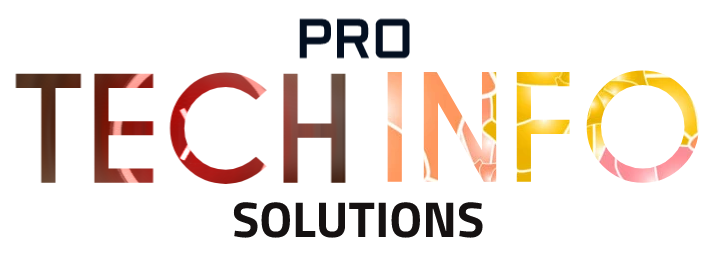The field of Human Resources (HR) is in a constant state of evolution. As we step into 2024, several emerging trends are reshaping the HR landscape. These trends are driven by technological advancements, changing workforce dynamics, and the evolving expectations of employees. To stay ahead in the world of HR, it’s crucial to be aware of these trends and adapt your strategies accordingly. In this comprehensive guide, we will explore the HR trends that you need to know for 2024.
Introduction
The role of HR has evolved from a purely administrative function to a strategic partner in organizational success. HR professionals are now tasked with attracting top talent, nurturing employee development, and creating a workplace culture that fosters innovation and growth. To achieve these goals, HR must stay attuned to the latest top hr trends that are shaping the workplace. Here are the key HR trends for 2024:
Skills-Based Hiring
As job roles continue to evolve, traditional qualifications are becoming less important than a candidate’s skill set. HR departments will shift their focus towards skills-based hiring, using data-driven assessments to match candidates with the skills required for specific roles.
Skills assessments and competency-based interviews will become standard practices. HR professionals will rely on data analytics to identify skills gaps within their organizations and develop targeted training programs.
Employee Wellbeing
Employee well-being has gained prominence in recent years, and this trend will intensify in HR Trends for 2023. HR will prioritize mental health support, work-life balance, and employee assistance programs to create a healthy and motivated workforce.
HR will adopt a holistic approach to employee well-being, encompassing physical, mental, and emotional health. Strategies will include flexible work hours, stress management resources, and access to wellness activities.
Diversity, Equity, and Inclusion (DEI)
DEI initiatives will continue to be a top priority for HR. Organizations will strive to create diverse and inclusive workplaces by implementing policies that address bias, promote equality, and ensure fair opportunities for all employees.
Companies will recognize that DEI isn’t just a moral imperative; it’s a competitive advantage. HR will work closely with leadership to embed DEI into the organizational culture and measure its impact on business outcomes.
AI-Powered HR
Artificial Intelligence (AI) will continue to transform HR functions. From candidate sourcing and assessment to predictive analytics for employee turnover, AI will be a powerful tool for HR professionals.
HR will leverage AI-powered chatbots for employee queries, use machine learning algorithms to identify flight risks and employ AI-driven tools for data-driven decision-making.
Remote Onboarding and Training
With remote and hybrid work arrangements, onboarding and training will need to adapt. HR will invest in digital onboarding platforms, virtual training programs, and immersive technologies like virtual reality (VR) for employee development.
VR simulations will become a staple in employee training, allowing for immersive learning experiences that simulate real workplace scenarios.
Data Privacy and Security
The collection and management of employee data will continue to be a focus area for HR. Organizations will need to ensure data privacy compliance and protect employee information from cyber threats.
HR will navigate the complexities of data privacy regulations like GDPR and implement robust security measures to safeguard sensitive HR data.
Agile Performance Management
Traditional annual performance reviews are giving way to agile performance management. HR will adopt continuous feedback mechanisms and agile goal-setting processes to enhance employee development.
Real-time feedback apps and peer reviews will become integral to performance management, enabling employees to receive timely insights and improve their skills.
Reskilling and Upskilling
The rapid pace of technological change will require organizations to invest in reskilling and upskilling their workforce. HR will lead initiatives to identify skill gaps and provide learning opportunities.
HR will promote a culture of lifelong learning, encouraging employees to acquire new skills and stay adaptable in a dynamic job market.
HR Analytics and Predictive Insights
HR will increasingly rely on analytics to make data-driven decisions. Predictive analytics will help in workforce planning, identifying potential talent gaps, and optimizing HR strategies.
HR professionals will transition from being data gatherers to strategic advisors, using analytics to align HR practices with organizational goals.
Hybrid Work Models
The COVID-19 pandemic accelerated the adoption of remote work, and many organizations have embraced hybrid work models. In 2024, HR will play a pivotal role in optimizing these hybrid arrangements. This includes ensuring that remote and in-office employees have equitable access to opportunities, resources, and career growth.
Hybrid work models are here to stay. HR will focus on creating inclusive policies and fostering collaboration among distributed teams. Leveraging technology for seamless communication and productivity will be a priority.
Conclusion
The HR landscape in 2024 is marked by rapid changes and evolving expectations. Trend analysis HR must be prepared to embrace these HR trends in 2023 and adapt their strategies to create workplaces that are inclusive, agile, and employee-centric. By staying at the forefront of HR innovations, organizations can attract and retain top talent, drive business success, and navigate the challenges of the future with confidence. As we step into 2024, the future of HR is bright, and those who harness these top hr trends 2023 will lead the way to a more prosperous and fulfilling world of work.
Visit: protechinfosolutions

